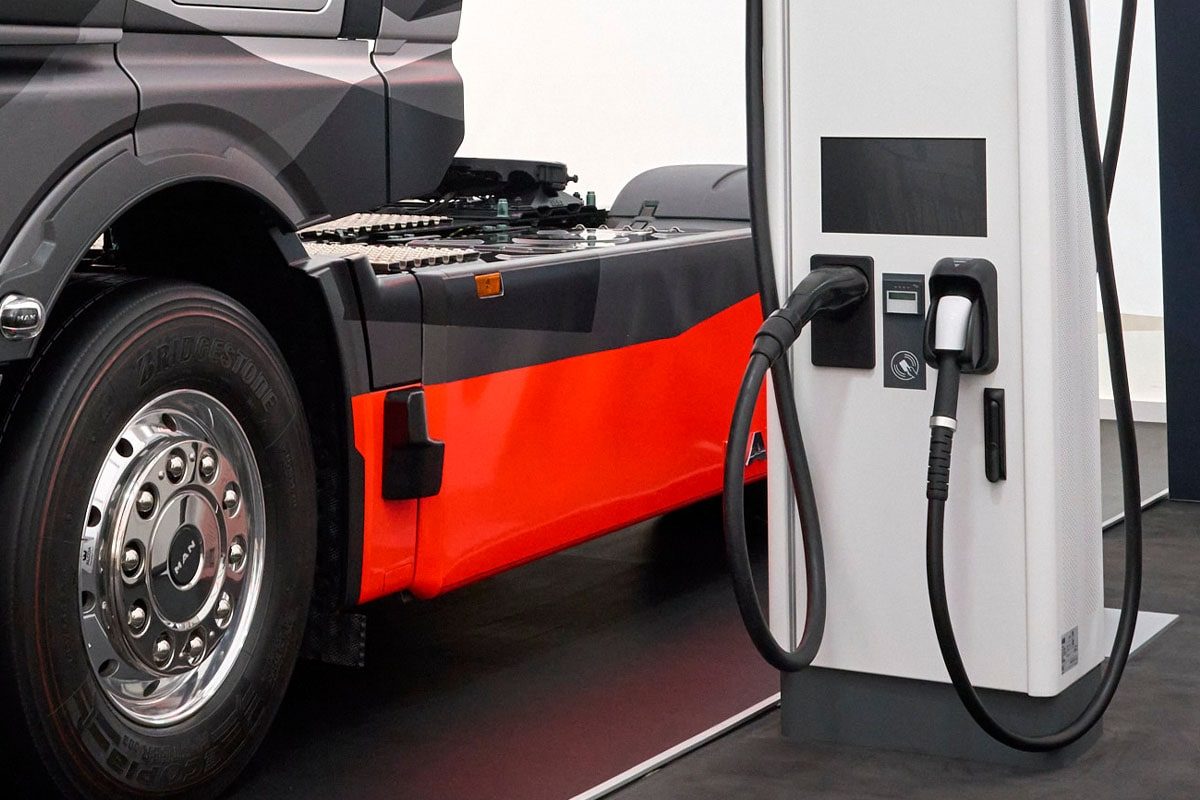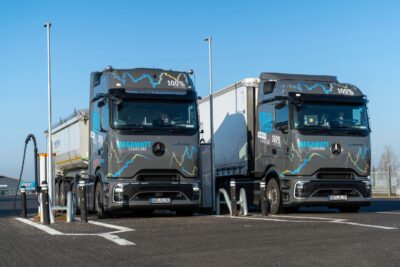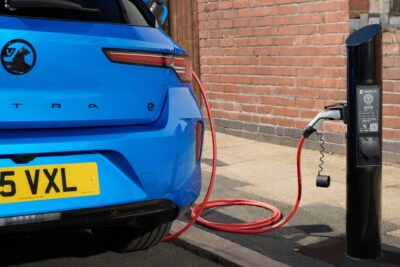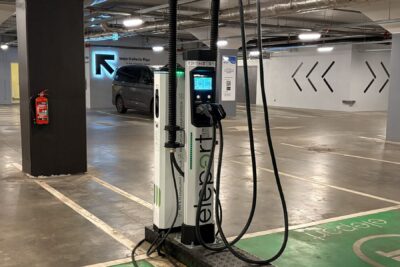ABB and MAN report successful MCS charging tests with Ethernet-based communication
According to ABB E-mobility, the company successfully completed initial MCS charging tests with Ethernet-based communication in partnership with the German commercial vehicle manufacturer MAN. The protocol is defined in ISO 15118-20 and the recently published ISO 15118-10, both of which govern the communication standard for MCS – and mark a departure from what’s used for CCS to date.
ABB outlines the current status as follows: “While MCS-ready trucks and chargers are about to come up for sales and the MCS standard is nearly finalized, earlier implementations and megawatt-level trials still relied on communication methods used for CCS-charging. .” The switch to Ethernet-based communication brings the advantage of greater reliability and seamless interoperability for high-performance use cases.
CCS charging uses a PLC-based Layer 1 protocol (PLC standing for Powerline Communication), underpinned by the ISO 15118 standard. In contrast, the MCS ecosystem has now aligned on extended ISO 15118 protocols that rely on digital communication via Ethernet, according to the IEEE 802.3 standard.
“Our actual MCS test with the newest communication standards with Ethernet confirms the viability and reliability of MCS charging, marking the next major step toward a robust, industry-wide megawatt charging network,” said Marcel Hessel, Head of Charging Systems & Components at MAN Truck & Bus. Logistics operators need to trust that megawatt charging will work reliably from day one – ‘and these successful tests prove that MCS is ready to deliver,’ Hessel added.
The tests took place at MAN’s site in Munich using a proof-of-concept charger – a pre-series device based on ABB’s Terra platform. “With charging sessions exceeding 700V and 1,000A the results validated system stability for long-duration, high-power charging – critical for fleet operators relying on minimal downtime and maximized efficiency,” the partners summed up. Technically speaking, they consider the system ready.
“Reaching this 1,000A milestone with the fully standardized MCS charging interface based on Ethernet communication using the latest protocols was a major achievement! This test highlights our strong cooperation with MAN and our shared commitment to enabling reliable, economic, and sustainable transport,” said Christopher Thompson, Head of Product Marketing at ABB E-mobility.
MAN Truck & Bus and ABB E-mobility have been working together on MCS charging for some time. The two companies signed a cooperation agreement at the beginning of 2024, and completed their first public megawatt charging demo roughly a year ago. At the time, a MAN eTruck was charged using a prototype ABB charger delivering 700 kW and 1,000 amps – but that session still used CCS communication. The vehicle’s battery charged from 10 to 80 per cent in ‘around half an hour’, according to MAN.
ABB’s Swiss engineers are also collaborating on MCS charging with truckmaker Scania, which, like MAN, is part of the Traton Group. These partnerships aim to iron out growing pains for early adopters of MCS-capable trucks. Software and interoperability testing between vehicles and chargers is expected to identify and resolve any bugs, paving the way for a reliable charging infrastructure from day one.
The Megawatt Charging System is designed for up to 1,250 volts and 3,000 amps – theoretically enabling charging power of up to 3.75 megawatts. For comparison, today’s CCS chargers – used by both passenger cars and commercial vehicles – deliver a maximum of 400 kW at 500 amps. Unlike with CCS, where port placement varies, MCS will have a standardised port location on the left side of the vehicle, between two and 4.80 metres from the front bumper, at roughly waist height. This uniform placement is intended to simplify charging site design, and CharIN has already shown the first charging system layouts.
ABB E-mobility and MAN have now demonstrated over 700 kW charging multiple times using prototype tech. “ With the finalisation of the MCS standard, charging capacities of over one megawatt will already be possible,” says MAN. The international standardisation process for MCS is expected to conclude shortly, with ABB E-mobility and MAN actively contributing via their involvement in the global industry body CharIN.





0 Comments